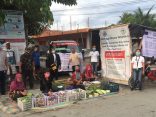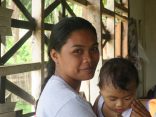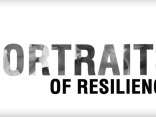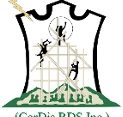by Darwin Masacupan
In photo: Alcid (second from the right) conferring with the people of Sitio Labey in Barangay Ambuklao, Bokod, Benguet on the houses built with the assistance of the European Commission – Humanitarian Aid and Civil Protection department (ECHO), CARE Nederland, the Cordillera Disaster Response and Development Services (CorDis RDS), and ACCORD.
Marieta Lupig-Alcid stands barely 5 feet tall. But this woman, wife, and mother has a big heart within that small frame of hers. She is a humanitarian, and she loves her work.
by Darwin Masacupan
In photo: Alcid (second from the right) conferring with the people of Sitio Labey in Barangay Ambuklao, Bokod, Benguet on the houses built with the assistance of European Commission – Humanitarian Aid and Civil Protection department (ECHO), CARE Nederland, the Cordillera Disaster Response and Development Services (CorDis RDS), and ACCORD.
Marieta Lupig-Alcid stands barely 5 feet tall. But this woman, wife, and mother has a big heart within that small frame of hers. She is a humanitarian, and she loves her work.
The Start
As Executive Director for a non-governmental organization (NGO), Assistance and Cooperation for Community Resilience and Development (ACCORD), Marieta oversees 54 staff across 3 offices, manages donor relations, and attends coordination meetings with other partners such as CARE and the European Union. Naturally reticent and soft-spoken, she admits that she did not see herself in a position like this.
“After college, I went back to Batangas and taught economics to high school students in De La Salle Lipa (DLSL) for 3 years. But the outreach programs we conducted in DLSL and my volunteer work with the Redemptorist Community seemed to capture my interest more. I decided to go for it and take the plunge into community work,” Marieta shares.
Her first experience with a large-scale disaster was during the Baguio earthquake of 1990. She recalls, “my courage seemed to have failed me. I was so afraid and I cried as we slept in a church which continuously shook with aftershocks.” Still, she was not to be deterred. Working with a group of volunteers, Marieta pulled herself up and helped in delivering aid to people.
Disaster Risk Reduction
Marieta would eventually gain more experience in emergency response, but her heart always beat for disaster risk reduction. She recalls, “Back in 1991 when Mount Pinatubo erupted, we participated in a massive public awareness campaign to get people to evacuate. That was when I saw that an emergency response after a disaster could only do so much. It is preparedness that saves lives.”
This understanding has fuelled and is currently fuelling ACCORD’s work in community-based disaster risk management. The capacity of the most vulnerable families and communities are strengthened through capacity-building activities so that they themselves recognize the hazards they are exposed to, analyse them and take action to build their resilience. This is called community risk assessment.
Disaster risk reduction is also built into the organization’s emergency response projects so that people are not merely dependent on aid given them. Areas covered by ACCORD’s Typhoon Yolanda Response received food assistance at the onset, with 60% of them now receiving shelter and livelihood assistance. All barangays and municipalities are starting with disaster preparedness activities. Marieta shares that “shelters are being repaired using Building Back Safer techniques, while livelihoods are being planned well so that people can diversify and have alternative sources of food.”
Family
Sometimes, Marieta, along with the rest of her staff, has to work even on weekends to deliver what is expected of them. She says, “It is difficult to leave home especially during emergencies, my family becomes very worried, even if I have been doing this for years. I try, as much as possible, to discuss my work with the children particularly, and if there are chances, I also get them involved in some work-related activities like earthquake drills.”
Her husband Joed, himself a government worker, has been very supportive, adopting a more hands-on approach in raising their two girls. Marieta notes that “he assumes the roles of both mother and father especially when I am on field work.” She adds that achieving work-life balance is “always a challenge for humanitarian workers. Weekends, if there are weekends, are spent at home with the kids.”
Challenges and Dreams
“Sometimes I feel old,” admits Marieta. Working late nights and constantly coordinating with partners can take its toll on her stamina. But she perseveres, saying that, “We still have a lot to improve on.”
Marieta has had her share of challenges, but she focuses more on her positive experiences. She says, “Communities affected by disasters are not nameless, faceless numbers. I am at my happiest when our partner communities inform us that they have evacuated early during emergencies, bringing food and important belongings as planned. Not everybody gets this chance, to have this kind of work, in their lifetime.”
She recognizes the primary responsibility of the government to protect the most vulnerable communities, saying that “Our role is to support them so that necessary preparedness measures are done prior to actual emergencies.” In general, Marieta deems ACCORD’s contribution as modest “compared to what communities themselves have put in. It is their resilience that makes the difference.”
Marieta wants to spend more time with her family and less time with work as she grows older. For the communities, her dream is to “see more of them fending for themselves collectively and in an organized manner. Then we can say that we have made our part.”




